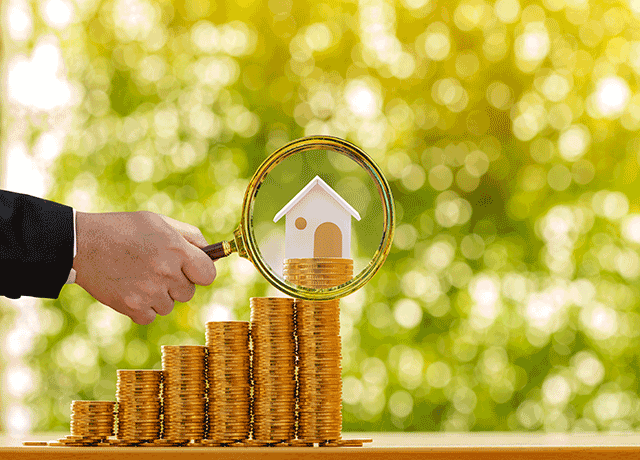*Article updated 27 June 2023
The sharp increase in interest rates might have caused homeowners to view their real estate purchase purely as an expense rather than an investment. Viewing property in this way can be dangerous, as it limits the potential returns a homeowner could stand to make when they eventually decide to sell.

READ: How to determine the true market value of your home
Regional Director and CEO of RE/MAX of Southern Africa, Adrian Goslett, says that it is important to view homeownership as both a long-term investment strategy as well as a place to call home. “Everyone needs a place to live; this can either be in the form of an expense, as with renting a property, or it could take the form of an investment, as with purchasing a property,” says Goslett.
When you choose to purchase, Goslett suggests that you consider ways to store up value in the home. “Because property is an appreciating asset, owning your home is also a form of wealth creation. Those who are smart about how they go about it could generate greater returns for themselves in the long term,” he notes.
READ: 7 Upgrades that will improve your home's kerb appeal dramatically
To help homeowners find ways to store up value in their homes, RE/MAX of Southern Africa shares the below tips.
Pay extra on your home loan
The first reason that this is a good idea is because it will save you on interest charges – the faster you can pay off the debt, the less interest will be payable. Even just paying an extra hundred Rand every month could take months off the loan term and could end up saving you tens (or even hundreds) of thousands of Rands.
Secondly, those with an access bond facility could view their home loan as a type of savings account. Once you have accumulated enough in the access bond, you could access that money again as a cheaper way to finance a new car (for example). A home loan tends to offer a significantly lower interest rate than a personal loan or vehicle finance. Financing big purchases through the home loan could work out to be more affordable as long as you pay it back within a few years and not over the full 20-year course of the home loan.
Renovate or build-on
Another way to store value in the home is to tackle projects that will increase the home’s resale value. The key here is to avoid over-capitalizing on the renovation. Work out roughly what it will cost to complete the project and then speak to a real estate professional to find out how much value the renovation could add to the home. For example, if the renovation might add R100,000 onto the home’s value, then you want to spend less than that to complete the renovation.
Sit tight
Real estate is a long-term investment strategy. Even if you do nothing to the home, it will be worth significantly more in ten year’s time from now. If you move every three to five years, you might be able to break even or walk away with a small profit after taking into consideration all the closing costs but, unless it was a property flip where major renovations were completed, homeowners do not stand to make too much money on the home when it is sold too soon.
“Property is a great investment opportunity for those who treat it as such. Homeowners who find ways to funnel some of their disposable income back into their homes will stand to make far greater returns than those who do not. Those who are curious to learn how much value they have built up on their home can reach out to a local RE/MAX agent for a free valuation of their property,” says Goslett.
READ: Are you having trouble selling your house? Try this…
Cobus Odendaal, CEO of Lew Geffen Sotheby’s International Realty in Johannesburg and Randburg, says: “It’s critical to price your home correctly right from the beginning because when buyers have as much choice as they currently do, they generally prioritise value for money and, if yours is over-priced, they’ll probably opt for a similar home at a better price".
“Additionally, if a buyer does make an offer, and the appraised value comes in significantly lower than the agreed-upon selling price, the bank could decline to provide the buyer a mortgage.”
Odendaal says that it’s understandable that sellers often find it difficult to be objective about the value of their properties because, unlike other investments, people have both a financial and emotional stake in their homes, especially if they have lived there for a long time and have upgraded the property.
However, at the end of the day, your home’s value is based on what buyers in the current market are willing pay, and this market value is also contingent on numerous key factors that will be taken into consideration by agents and appraisers.
Click here to find out what the 11 factors are that could influence your home valuation
Want all the latest property news and curated hot property listings sent directly to your inbox? Register for Property24’s Hot Properties, Lifestyle and Weekly Property Trends newsletters or follow us on Twitter, Instagram or Facebook.








